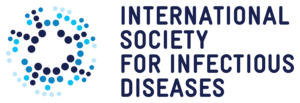In May 2019, the International Society for Infectious Diseases and Pfizer Independent Global Medical Grants announced a partnership to fund antimicrobial stewardship programs in Latin America. This competitive grant challenge attracted over 60-proposals striving to better understand the development of anti-microbial resistance, reduce unnecessary use of antibiotics and improve dispensing methods amongst healthcare professionals. From these 60-proposals, an expert team of antimicrobial resistance specialists contributing local and international viewpoints reviewed each project and advanced 15 programs to the final round. Ultimately, the expert review panel selected 6 organizations to receive funding through this challenge.
In total, $1.1-million USD in funding was distributed to organizations working in Mexico, Argentina, Guatemala, Brazil, Colombia, and Uruguay. Projects selected will make advancements in metagenomics mapping, develop mobile applications to assist physicians with decision making, and implement procedures to monitor and improve prescribing practices. Dr. Britta Lassmann, Program Director at ISID, commented, “The expert review panel members were impressed by the quality of the submitted proposals and the innovative ideas to implement stewardship activities. I look forward to seeing the progress of the funded projects.”
Institutions selected for funding and their proposed programs are:
- Hospital Infantil de México Federico Gómez, Mexico – “Implementing the Antimicrobial Stewardship Program at the Hospital Infantil de México Federico Gómez”
- Centro de Estudios en Salud, Guatemala – “Smart Thrive on Antimicrobial Therapy in Guatemala”
- Instituto de Microbiología y Parasitología Medica (IMPaM), Argentina – “Genomics and metagenomics applied to optimize the empirical antimicrobial stewardship for inpatients with risk of infection by Carbapenem-Resistant Gram-Negative bacteria”
- Rio de Janeiro State Health Secretariat, Brazil – “Antimicrobial stewardship for small and medium hospitals in Rio de Janeiro, Brazil”
- Universidad Nacional de Colombia, Colombia – “Antimicrobial stewardship programs in a Latin American country”
- Institut Pasteur Montevideo, Uruguay – “A city-scale molecular map of antimicrobial resistance among hospital settings, the urban environment and human population: towards the application of metagenomics for the assessment of stewardship programs”
Beginning in 2020, these organizations will implement their programs throughout the Latin America region. The knowledge and clinical outcomes gained from this grant challenge will benefit patients around the globe and contribute to the ever-growing body of antimicrobial resistance knowledge.
ISID and Pfizer would like to thank all of those who submitted proposals to the grant challenge and the tireless efforts of the expert review committee who helped make this program possible. Be sure to follow ISID’s social media accounts and our newsletter for project updates.




